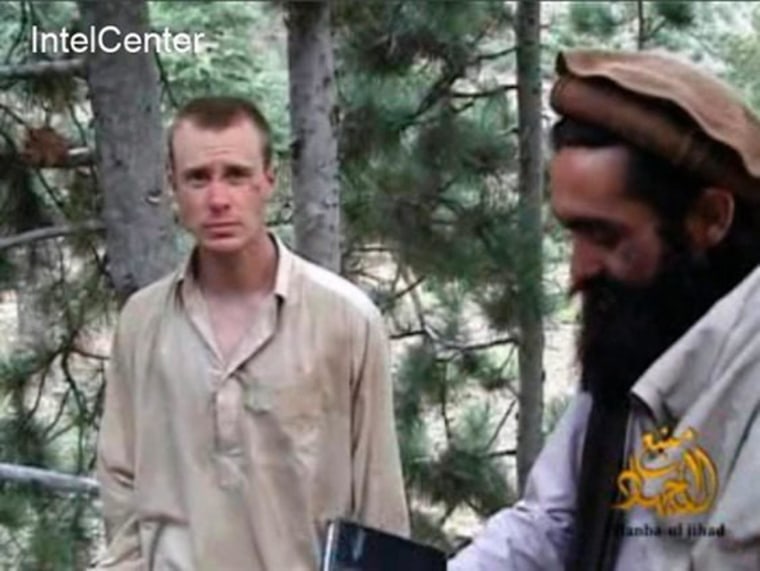Qatar will temporarily extend a travel ban on the five senior Taliban leaders exchanged for Sgt. Bowe Bergdahl's release, U.S. government officials confirmed on Monday.
The high ranking members of the terrorist group have lived in Qatar, a tiny nation on the Arabian Peninsula, since last year where that government has been monitoring the Taliban leaders' activities and preventing them from traveling out of the country. However, that travel ban was only for a year and if an agreement wasn’t struck with Qatar, the five high ranking members of the terrorist organization could have left that country today.
U.S. officials were confident that would not happen.
The temporary ban’s extension will remain in place while the Qatar, Afghanistan and American governments work on a more permanent solution, the White House said on Monday.
“We continue to be in touch with our partners in Qatar for what a path forward will be,” White House press secretary Josh Earnest said during a briefing on Monday.
The five Taliban leaders had previously been held in U.S. detention at Guantanamo Bay, Cuba, until they were released in exchange for Bergdahl. While the five detainees were sent to Qatar, Bergdahl was released to the U.S. military after being held captive by the Taliban for nearly five years after he walked away from his Army post in Afghanistan.
NBC News first reported in January that Bergdahl was likely to be charged with desertion. The Army also had the option of filing the lesser charge of going absent without leave, or AWOL.
The five prisoners released include former Taliban deputy minister of defense and Taliban Army chief Mohammad Fazl, senior commander Mullah Norullah Noori, senior Taliban official Mohammed Nabi, military commander Khairullah Khairkhwa and the Taliban's deputy intelligence chief Abdul Haq Wasiq.
At least one of the five allegedly contacted militants during the past year while in Qatar. No details have been disclosed about that contact, but the White House confirmed that one was put under enhanced surveillance.
Sen. John McCain, R-Ariz., chairman of the Senate Armed Services Committee, said recently, according to the Associated Press: "I know that at least one has had communication with the Taliban."
And one or more of the detainees had some members of the al-Qaida-affiliated Haqqani militant group travel to Qatar to meet with them earlier in the year, according to Sen. Lindsey Graham, R-S.C. That was an indication that the group was reaching out to communicate with so-called Taliban Five, said Graham who told the Associated Press that he predicts all five will rejoin the fight.
Four of the five former detainees remain on the United Nations' blacklist, which freezes their assets and has them under a separate travel ban. But the U.N. itself has acknowledged that its travel ban has been violated.
The State Department insists that U.S. officials work to mitigate the risk of former Guantanamo detainees returning to the fight, threatening Americans or jeopardizing U.S. national security. U.S. officials have noted in the past that the five Taliban leaders are middle-aged or older, were former officials in the Taliban government and probably wouldn't be seen again on any battlefield, although they could continue to be active members of the Taliban.

